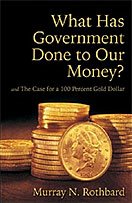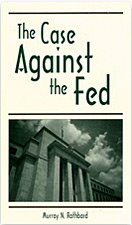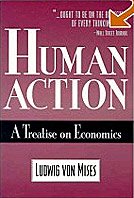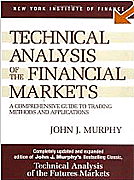Ambrose Evans-Pritchard: Market votes no confidence in Fed
Global Credit System Suffers Cardiac Arrest on U.S. Crash
By Ambrose Evans-Pritchard
The Telegraph, London
Thursday, September 18, 2008
The global credit system came close to total seizure yesterday. Key parts of the derivatives market shut down and a panic flight to safety depressed the yield on three-month US Treasury bills to almost zero for the first since the Great Depression in 1934.
The closely-watched TED-spread measuring stress in the interbanking lending market rocketed to 238 as the share prices of Morgan Stanley, Goldman Sachs, Citigroup, Wachovia, and Bank of America all went into a tailspin yesterday.
The collapse in investor confidence is a harsh verdict on the judgment of the US Federal Reserve, which chose to ignore market pleas for a rate cut to halt what amounts to a modern-era run on the banking system. Almost none of the current Fed governors have market experience. Most are academic theorists.
The Fed had hoped that a targeted $85 billion (L47 billion) bailout for insurance giant AIG -- on onerous terms -- would be enough to stabilize the banks after the weekend failure of Lehman Brothers. Instead it set off a cardiac arrest at the heart of the credit system.
Bernard Connolly, global strategist at Banque AIG, said the Fed and the Treasury were doing too little, too late, to stave off disaster. Interest rates need to be cut immediately and dramatically, while Washington must prepare for a wholesale takeover of large parts of the lending system along the lines of the Scandinavian bank rescues in the early 1990s.
"Unless there is a very rapid change of mind, depression -- with all its horrors and consequences -- will be inevitable. The judgment that letting Lehman's go would not create systemic risk depended, if it was ever going to be anything other than ludicrous, on very rapid action to shore up the financial system. Instead, Hank Paulson seems to be adding to the risk in the system," he said.
"We fear that a virtual nationalisation of the financial system will now be necessary," he said.
America's Reserve Primary Fund suspended withdrawals after shareholders pulled out almost $40 billion in two days on news of its heavy exposure to Lehman's debt. The move came as the fallout from Lehman's collapse spread worldwide. Japan's Nikkei wire said Japanese banks would suffer almost $2 billion of losses on Lehman's bond defaults.
Russia suspended trading the Moscow bourse after the Micex index crashed 24 percent in two days. Officials promised $44 billion to support the banking system.
As Washington bails out one financial institution after another, investors have begun to doubt the long-term credit-worthiness of the US itself.
The cost of insuring against default on 10-year US Treasuries jumped to an all-time high of 30 basis points yesterday, as measured by the credit default swaps (CDS) on the derivatives markets. Germany is at 13, and France is 20.
"This is historically significant because we have never seen anything like it before," Daniel Pfaender, sovereign credit strategist at Dresdner Kleinwort.
"What we don't know yet is whether this a liquidity issue or whether it reflects the credibility of the US financial system."
The Treasury's rescue of the mortgage giants Fannie Mae and Freddie Mac has added $5.3 trillion in liabilities to the US government. It almost doubles the national debt (under IMF definitions), at least on paper.
The Fed has now added a further $85 billion in debt for AIG. While the sums are manageable so far, what worries investors is the likely avalanche of insolvencies yet to come.
The Federal Deposit Insurance Corporation has already exhausted half its capital cleaning up after the collapse of IndyMac. It may need half a trillion dollars of fresh money to cope with the 120-odd lenders on its sick list. Professor Nouriel Roubini from New York University warns that several hundred banks will go under before this hurricane has exhausted its fury.
John Chambers, head of sovereign ratings at Standard & Poor's, said America's AAA grade is safe for now. The Fannie/Freddie bailout is not comparable to ordinary state debt. It is backed by housing collateral, mostly based on prime mortgages.
"In the worst-case scenario, the losses from Fannie and Freddie will be 2.5 percent of GDP. This is not to belittle the unprecedented actions of the last two weeks.
"For the US to lose its AAA we would have to see the sort of financial distress that occurred in the Nordic countries. It could get that bad. There's no God-given gift of a AAA rating. The US has to earn it like everyone else," he said.
Charles Dumas from Lombard Street Research said America's dependence on foreign money would carry a high price. "The ultimate test will be whether this seriously jeopardizes the reserve currency role of the US dollar. China finances the US government. So as long as the Chinese are willing to accept an annual loss of 15 percent on their holdings of US bonds in real yuan terms, this can go on, but the decision lies in Beijing. What is clear is that it will take the US decades to pay this off," he said.
Hans Redeker, currency chief at BNP Paribas, says the US debt scare is vastly overblown. America's total government debt is 48 percent of GDP on IMF measures, compared to 57 percent for Germany, 94 percent for Japan, and 108 percent for Italy.
"The debt levels are nothing compared to Europe, even after Fannie and Freddie. America still has great leeway," he said.
"We think the next phase of this crisis is going to be a repatriation story as American investors bring their money back from frontier markets. The US broker dealers were 60 times leveraged and now they need to take assets back onto dollar balance sheets."
Albert Edwards, global strategist at Societe Generale, said Washington's serial bailouts are the inevitable result of the credit bubble of preceding years. "This was all baked in the cake long ago. What we have seen so far is just a dress rehearsal for the deep recession that is coming. America is going to be losing 500,000 jobs a month. That is when we will see interest rates go to zero. The deficit will be covered with printed money as it was in Japan. The endgame will be helicopters full of cash dropped by Ben Bernanke," he said.
* *
The Telegraph, London
Thursday, September 18, 2008
The global credit system came close to total seizure yesterday. Key parts of the derivatives market shut down and a panic flight to safety depressed the yield on three-month US Treasury bills to almost zero for the first since the Great Depression in 1934.
The closely-watched TED-spread measuring stress in the interbanking lending market rocketed to 238 as the share prices of Morgan Stanley, Goldman Sachs, Citigroup, Wachovia, and Bank of America all went into a tailspin yesterday.
The collapse in investor confidence is a harsh verdict on the judgment of the US Federal Reserve, which chose to ignore market pleas for a rate cut to halt what amounts to a modern-era run on the banking system. Almost none of the current Fed governors have market experience. Most are academic theorists.
The Fed had hoped that a targeted $85 billion (L47 billion) bailout for insurance giant AIG -- on onerous terms -- would be enough to stabilize the banks after the weekend failure of Lehman Brothers. Instead it set off a cardiac arrest at the heart of the credit system.
Bernard Connolly, global strategist at Banque AIG, said the Fed and the Treasury were doing too little, too late, to stave off disaster. Interest rates need to be cut immediately and dramatically, while Washington must prepare for a wholesale takeover of large parts of the lending system along the lines of the Scandinavian bank rescues in the early 1990s.
"Unless there is a very rapid change of mind, depression -- with all its horrors and consequences -- will be inevitable. The judgment that letting Lehman's go would not create systemic risk depended, if it was ever going to be anything other than ludicrous, on very rapid action to shore up the financial system. Instead, Hank Paulson seems to be adding to the risk in the system," he said.
"We fear that a virtual nationalisation of the financial system will now be necessary," he said.
America's Reserve Primary Fund suspended withdrawals after shareholders pulled out almost $40 billion in two days on news of its heavy exposure to Lehman's debt. The move came as the fallout from Lehman's collapse spread worldwide. Japan's Nikkei wire said Japanese banks would suffer almost $2 billion of losses on Lehman's bond defaults.
Russia suspended trading the Moscow bourse after the Micex index crashed 24 percent in two days. Officials promised $44 billion to support the banking system.
As Washington bails out one financial institution after another, investors have begun to doubt the long-term credit-worthiness of the US itself.
The cost of insuring against default on 10-year US Treasuries jumped to an all-time high of 30 basis points yesterday, as measured by the credit default swaps (CDS) on the derivatives markets. Germany is at 13, and France is 20.
"This is historically significant because we have never seen anything like it before," Daniel Pfaender, sovereign credit strategist at Dresdner Kleinwort.
"What we don't know yet is whether this a liquidity issue or whether it reflects the credibility of the US financial system."
The Treasury's rescue of the mortgage giants Fannie Mae and Freddie Mac has added $5.3 trillion in liabilities to the US government. It almost doubles the national debt (under IMF definitions), at least on paper.
The Fed has now added a further $85 billion in debt for AIG. While the sums are manageable so far, what worries investors is the likely avalanche of insolvencies yet to come.
The Federal Deposit Insurance Corporation has already exhausted half its capital cleaning up after the collapse of IndyMac. It may need half a trillion dollars of fresh money to cope with the 120-odd lenders on its sick list. Professor Nouriel Roubini from New York University warns that several hundred banks will go under before this hurricane has exhausted its fury.
John Chambers, head of sovereign ratings at Standard & Poor's, said America's AAA grade is safe for now. The Fannie/Freddie bailout is not comparable to ordinary state debt. It is backed by housing collateral, mostly based on prime mortgages.
"In the worst-case scenario, the losses from Fannie and Freddie will be 2.5 percent of GDP. This is not to belittle the unprecedented actions of the last two weeks.
"For the US to lose its AAA we would have to see the sort of financial distress that occurred in the Nordic countries. It could get that bad. There's no God-given gift of a AAA rating. The US has to earn it like everyone else," he said.
Charles Dumas from Lombard Street Research said America's dependence on foreign money would carry a high price. "The ultimate test will be whether this seriously jeopardizes the reserve currency role of the US dollar. China finances the US government. So as long as the Chinese are willing to accept an annual loss of 15 percent on their holdings of US bonds in real yuan terms, this can go on, but the decision lies in Beijing. What is clear is that it will take the US decades to pay this off," he said.
Hans Redeker, currency chief at BNP Paribas, says the US debt scare is vastly overblown. America's total government debt is 48 percent of GDP on IMF measures, compared to 57 percent for Germany, 94 percent for Japan, and 108 percent for Italy.
"The debt levels are nothing compared to Europe, even after Fannie and Freddie. America still has great leeway," he said.
"We think the next phase of this crisis is going to be a repatriation story as American investors bring their money back from frontier markets. The US broker dealers were 60 times leveraged and now they need to take assets back onto dollar balance sheets."
Albert Edwards, global strategist at Societe Generale, said Washington's serial bailouts are the inevitable result of the credit bubble of preceding years. "This was all baked in the cake long ago. What we have seen so far is just a dress rehearsal for the deep recession that is coming. America is going to be losing 500,000 jobs a month. That is when we will see interest rates go to zero. The deficit will be covered with printed money as it was in Japan. The endgame will be helicopters full of cash dropped by Ben Bernanke," he said.
* *
Labels: Ambrose Evans Pritchard, financial crisis, markets















![[Most Recent Quotes from www.kitco.com] [Most Recent Quotes from www.kitco.com]](http://www.kitco.com/images/live/t24_au_en_usoz_6.gif)
![[Most Recent Quotes from www.kitco.com] [Most Recent Quotes from www.kitco.com]](http://www.kitco.com/images/live/au_go_0030_ny.gif)
![[Most Recent Quotes from www.kitco.com] [Most Recent Quotes from www.kitco.com]](http://www.kitco.com/images/live/au_go_0365_ny.gif)
![[Most Recent Quotes from www.kitco.com] [Most Recent Quotes from www.kitco.com]](http://kitconet.com/charts/metals/silver/t24_ag_en_usoz_4.gif)

















0 ΣΧΟΛΙΑ (COMMENTS):
Post a Comment
<< Home